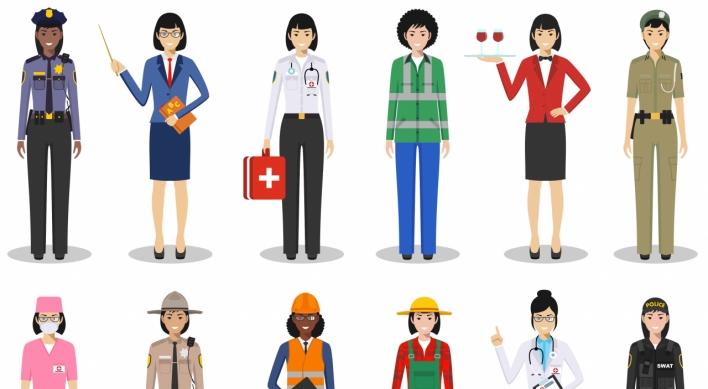Top 10 chaebol fill one-third of new auditor spots with ex-officials
By 박한나Published : March 18, 2013 - 15:56
South Korea's top 10 conglomerates plan to fill one-third of their new auditor positions with former bureaucrats and law enforcement officials, data showed Monday, a move that critics claim is meant to take advantage of their personal connections for corporate benefits.
A total of 66 companies affiliated with the country's family-controlled conglomerates, known as chaebol, have either selected or plan to select 81 new finance managers through an annual general meeting of shareholders, according to the data compiled by the country's online regulatory filing system and the Korea Exchange, South Korea's stock market operator.
The number of former officials selected as auditors for the 66 companies reached 25, accounting for 30.9 percent. The former officials included tax officials, prosecutors, and those who worked for the antitrust watchdog Fair Trade Commission, the data showed.
Samsung Electronics Co., the world's top smartphone, flat-panel TV and memory chip maker, has selected former top prosecutor Song Kwang-soo as its new auditor.
LG Corp. a holding company of LG subsidiaries, including South Korea's No. 2 electronic giant LG Electronics, plans to name former Labor Minister Kim Dae-hwan as a new finance manager.
Hyundai Mobis Co., South Korea's top auto parts maker affiliated with auto giant Hyundai Motor Group, has selected Park Chan-wook, former commissioner of the Seoul regional tax office, as its legal adviser and outside director.
Doosan Infracore Co., South Korea's leading construction equipment maker affiliated with Doosan Group, is scheduled to select Kwon Tae-shin, a former chief of staff for the prime minister from 2009-2010, as an auditor.
Ryu Young-jae, CEO of Sustinvest, a private think tank handling research and consulting for companies' social responsible investments, criticized finance managers for primarily engaging in lobbying activities for their companies, saying they should instead be independent from the largest shareholders and top management. (Yonhap News)
A total of 66 companies affiliated with the country's family-controlled conglomerates, known as chaebol, have either selected or plan to select 81 new finance managers through an annual general meeting of shareholders, according to the data compiled by the country's online regulatory filing system and the Korea Exchange, South Korea's stock market operator.
The number of former officials selected as auditors for the 66 companies reached 25, accounting for 30.9 percent. The former officials included tax officials, prosecutors, and those who worked for the antitrust watchdog Fair Trade Commission, the data showed.
Samsung Electronics Co., the world's top smartphone, flat-panel TV and memory chip maker, has selected former top prosecutor Song Kwang-soo as its new auditor.
LG Corp. a holding company of LG subsidiaries, including South Korea's No. 2 electronic giant LG Electronics, plans to name former Labor Minister Kim Dae-hwan as a new finance manager.
Hyundai Mobis Co., South Korea's top auto parts maker affiliated with auto giant Hyundai Motor Group, has selected Park Chan-wook, former commissioner of the Seoul regional tax office, as its legal adviser and outside director.
Doosan Infracore Co., South Korea's leading construction equipment maker affiliated with Doosan Group, is scheduled to select Kwon Tae-shin, a former chief of staff for the prime minister from 2009-2010, as an auditor.
Ryu Young-jae, CEO of Sustinvest, a private think tank handling research and consulting for companies' social responsible investments, criticized finance managers for primarily engaging in lobbying activities for their companies, saying they should instead be independent from the largest shareholders and top management. (Yonhap News)


















